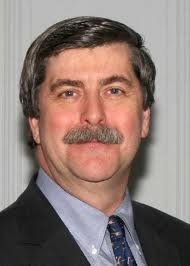High school students in Great Neck may soon get expanded access to the internet, as the Great Neck school board considers a measure that would loosen Web filters for educational resources.
The proposal, introduced at Monday night’s board meeting, would roll out a series of changes to the district’s internet policies for high schoolers. Included are unblocking blogs, wikis and video streaming sites, ending one-size-fits-all filtering for different age groups, giving high school students district e-mail addresses and allowing schools and clubs to create Facebook pages accessible from school networks.
“The revisions to this policy balance the need to protect our students by compliance with the Children’s Online Protection Act and the Children’s Internet Protection Act, while addressing how technology is now used both to work and to communicate,” said school Trustee Susan Healey, the head of the board’s policy committee.
The changes were spearheaded by students at Great Neck North and Great Neck South high schools, said North High student Matthew Wiggler, who along with classmates Daniel Hanover and Alex Storozum served on a technology committee that collaborated with administrators on writing the new policy.
“You can’t keep us in a playpen when we’re in high school. There’s big difference between what’s acceptable for a high school student to look at on a computer and what a kindergarten student does,” Wiggler said. “We said we have finally had enough.”
Schools that receive federal discounts for internet access are required by federal law to maintain filters that block access to obscene, pornographic or harmful material, and must monitor the online activities of minors. But schools have latitude in how they set up those filters and what services or Web sites are allowed on school networks.
Hanover said a top priority of the student committee was to unblock video streaming site YouTube for high school students, and that the current filter obstructed the use of video sites for educational purposes.
“There was a huge outcry from the student body saying they needed these Web sites – there were even teachers using them,” Hanover said. “The fact that they were blocked was getting kind of ridiculous.”
In one AP government class, Storozum said, YouTube videos were a part of the curriculum and students would often skirt the restrictions by accessing blocked sites on personal smart phones.
“When it came time to study for the tests it was very difficult, as a lot of the material was on YouTube,” Storozum said. “What was common for this course was for us to go on our cell phones during our free period, instead of actually using the computers.”
The reforms would allow students to send educational materials by e-mail during the school day, use professional or educational social networks and access school and club information – including school newspapers – through a read-only version of Facebook, Wiggler said.
“We want to make sure that those resources are available to students in the high school who need them for research and for really any general convenience purposes,” Wiggler said.
The changes would also increase internet access for staff members, allowing them to use the district network for personal reasons before and after school hours.
Board President Barbara Berkowitz said the policy had been in the works since last year, as the board sought to adapt to an increasingly digital world while maintaining protections for students.
“We had to think about how best to do this to make sure that there would still be some controls in place,” Berkowitz said.
The policy is subject to two more readings before a vote, and Great Neck Superintendent of Schools Tom Dolan said that the student e-mail addresses would be ready for a January launch should the board approve the changes.
Parents at the meeting voiced concerns that the student e-mails would not be sufficiently monitored.
District Technology Director Marc Epstein said the district could access any school e-mail account, but that it would not routinely look through students’ e-mail accounts.

